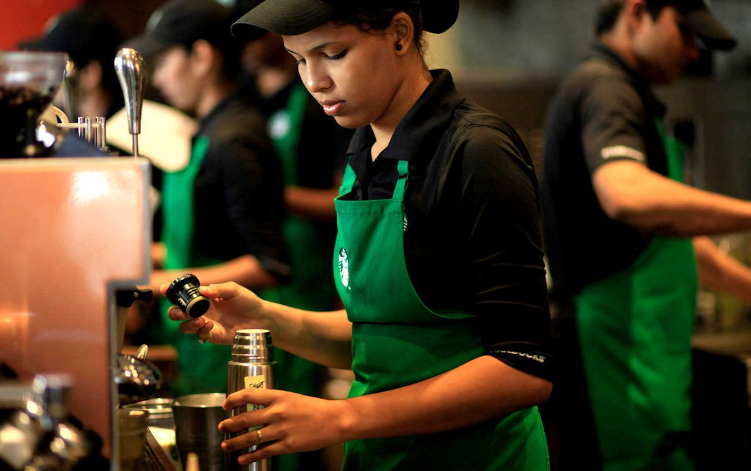The Canadian poultry industry is a thriving sector, offering a multitude of career paths. But did you know some of these positions might hold the key to working and living in Canada? Enter the Labour Market Impact Assessment (LMIA) program. This program streamlines the process for employers to hire qualified poultry workers from abroad, making it an exciting possibility for international candidates.
This guide dives deep into LMIA approved jobs for poultry workers in Canada, equipping you with the knowledge to navigate this path. We’ll explore potential roles, understand the factors influencing LMIA approval, and discover avenues for finding these coveted opportunities.
LMIA Approved Jobs for Poultry Workers in Canada
The Canadian poultry industry offers a variety of employment opportunities, and some positions may be eligible for Labour Market Impact Assessment (LMIA) approval. An LMIA is a document issued by the Canadian government that confirms a genuine effort has been made to hire Canadian citizens or permanent residents before bringing in foreign workers. LMIA approval simplifies the process for employers to recruit qualified poultry workers from abroad.
Types of LMIA Approved Jobs for Poultry Workers in Canada
Canada’s poultry industry offers a diverse range of roles, with some holding the potential for LMIA approval. Here’s a closer look at some common positions and their estimated salary ranges:
Poultry Processing Plant Roles:
- Poultry Slaughterers and Cutters: (Salary Range: $14 – $18 per hour). This demanding role involves the humane euthanasia of birds, followed by processing the carcasses into various cuts. Workers must possess a strong stomach, ability to handle repetitive tasks, and adhere to strict safety protocols.
- Poultry Processing Line Workers: (Salary Range: $15 – $20 per hour). These workers keep the processing line running smoothly by performing specific tasks like eviscerating, deboning, packaging, and quality control. Dexterity, good hand-eye coordination, and the ability to work efficiently under pressure are essential.
- Poultry Plant Maintenance Workers: (Salary Range: $18 – $25 per hour). These skilled individuals ensure the smooth operation of processing equipment. They perform preventative maintenance, troubleshoot issues, and conduct repairs. Mechanical aptitude, problem-solving skills, and a strong work ethic are key.
Poultry Farm Roles:
- Poultry Farm Workers: (Salary Range: $12 – $16 per hour). These individuals are responsible for the overall well-being of live birds. Tasks include feeding, watering, maintaining clean coop environments, monitoring bird health, and collecting eggs. Physical stamina, a love for animals, and attention to detail are valuable assets.
- Poultry Graders: (Salary Range: $16 – $20 per hour). These individuals assess the quality and size of poultry carcasses according to established grading standards. They need a good eye for detail, the ability to work quickly and accurately, and strong hand-eye coordination.
- Poultry Feed Mill Workers: (Salary Range: $17 – $22 per hour). These workers operate and maintain machinery used for creating and processing poultry feed. They may also be involved in quality control procedures to ensure the feed meets nutritional requirements. Mechanical aptitude, the ability to follow safety protocols, and a strong work ethic are essential.
- Poultry Hatchery Workers: (Salary Range: $16 – $20 per hour). Hatchery workers manage the incubation process, ensuring optimal conditions for eggs to hatch into healthy chicks. This role requires a keen eye for detail, the ability to follow protocols precisely, and a focus on maintaining sterile environments.
Other Specialized Poultry Worker Roles with LMIA Potential:
- Poultry Quality Assurance Technicians: (Salary Range: $18 – $23 per hour). These technicians play a vital role in ensuring food safety and product quality. They conduct inspections throughout the processing line, collect samples for testing, and maintain detailed records. This role requires a strong understanding of food safety regulations, a keen eye for detail, and the ability to work independently.
- Poultry Breeders: (Salary Range: $18 – $25 per hour). Poultry breeders manage breeding flocks, ensuring genetic diversity and desired traits are passed on to future generations. This role requires knowledge of poultry breeding principles, animal husbandry practices, and record-keeping.
- Poultry AI Technicians: (Salary Range: $20 – $25 per hour). As technology advances, Artificial Insemination (AI) is becoming increasingly common in poultry breeding. AI technicians are responsible for semen collection, preparation, and insemination of hens. They need a strong understanding of poultry reproduction, animal handling techniques, and proper hygiene procedures.
Important Note: These salary ranges are estimates based on various sources and can vary depending on factors like location, company size, specific job duties, and experience level.
It’s also important to remember that LMIA approval is more likely for positions requiring specialized skills or where there’s a demonstrable shortage of qualified Canadian workers.
For example, Poultry Plant Maintenance Workers with specific equipment knowledge or Hatchery Workers with experience in biosecurity measures might have a higher chance of LMIA sponsorship compared to entry-level processing line positions.
Eligibility Requirements for LMIA Approved Jobs for Poultry Workers in Canada
While LMIA approval streamlines the immigration process for foreign poultry workers, there are eligibility requirements you’ll need to meet to be considered for these positions. Here’s a breakdown of the key factors employers and immigration officials assess:
General Eligibility:
- Valid Job Offer: This is the cornerstone. You’ll need a confirmed job offer from a Canadian employer with a positive LMIA for the specific poultry worker position.
- Relevant Experience: Previous experience in poultry farming, processing, or related agricultural fields strengthens your candidacy. Documentation like work references or past employment records can be crucial.
- Meet Educational Requirements: The required level of education can vary depending on the specific job. Some positions might require a high school diploma, while others might benefit from post-secondary certifications or training programs relevant to poultry production.
- Language Skills: Proficiency in English or French (or ideally both) is often preferred by employers. The ability to communicate effectively and understand safety protocols is essential.
LMIA approval simplifies the work permit process, but it doesn’t guarantee permanent residency. Eligibility requirements for permanent residency can differ, and it’s advisable to consult with an immigration professional for specific guidance.
Enhancing Your Eligibility:
Here are some proactive steps you can take to improve your eligibility for LMIA-approved poultry worker jobs:
- Highlight Relevant Skills: Showcase your poultry-related skills and experience on your resume and cover letter.
- Consider Additional Training: Research and pursue relevant training programs or certifications in poultry farming, processing techniques, or food safety to enhance your skillset.
- Learn Basic English or French: If you don’t possess strong English or French language skills, consider taking language courses to improve your communication abilities.
By understanding the eligibility requirements, proactively strengthening your qualifications, and demonstrating your suitability for the role, you can position yourself as a competitive candidate for LMIA approved jobs poultry workers in Canada.
Factors Affecting LMIA Approval for Poultry Workers in Canada
Obtaining LMIA approval for poultry worker jobs in Canada streamlines the immigration process for foreign workers. However, securing this approval isn’t guaranteed and hinges on several factors. Here’s a breakdown of the key elements that influence LMIA decisions:
Genuine Effort to Recruit Canadians:
- Job Advertisement: Employers must demonstrate a good faith attempt to find qualified Canadian workers first. This typically involves advertising the position on the Job Bank for a specific period and potentially on other relevant platforms.
- Recruitment Efforts: The LMIA application should detail the recruitment efforts undertaken. This could include details about job fairs attended, agencies contacted, and the number of applications received from Canadian candidates.
Skill and Labour Market Considerations:
- Skill Level Required: Specialized or technical poultry processing jobs, like Poultry Quality Assurance Technicians or AI Technicians, are more likely to gain LMIA approval compared to entry-level positions with lower skill barriers. Employers need to demonstrate that the required skills are not readily available in the Canadian workforce.
- Labour Market Shortage: If there’s a demonstrably low number of qualified Canadian workers available in the area for the specific job, LMIA approval becomes more probable. Employers might provide data or reports to support this claim.
Wages and Working Conditions:
- Fair Wages: The offered wages must be at or above the prevailing wage for similar positions in the region. This ensures Canadian workers are not being undercut, and the job offer is attractive to potential foreign employees.
- Acceptable Working Conditions: LMIA approval is less likely if working conditions are poor or fall below Canadian standards. Safe work environments, reasonable hours, and adherence to labour laws are crucial.
Other Additional Considerations:
- Employer Compliance History: A history of previous LMIA approvals or a positive record of employing foreign workers in compliance with regulations can increase the chances of future LMIA success.
- Employer Reputation: A strong company reputation for fair treatment of workers and positive work environments can make LMIA approval more likely.
By understanding these factors and ensuring compliance with LMIA requirements, employers can strengthen their application and increase the chances of LMIA approval for foreign poultry workers. It’s also advisable to consult with immigration professionals who can provide specific guidance based on the individual situation.
Finding LMIA Approved Jobs for Poultry Workers in Canada
Finding LMIA approved jobs for poultry workers in Canada requires proactive searching and utilizing various resources. Here are some effective strategies to help you navigate this process:
Employer Websites:
- Major Poultry Processors: Large poultry companies like Maple Leaf Foods often advertise job openings on their “careers” pages. Look for specific mentions of LMIA sponsorship within the job description or explore the company’s immigration support programs.
- Regional Poultry Farms: Many smaller poultry farms also have online presences. Check their websites or social media pages for job postings. While LMIA sponsorship might not be explicitly mentioned, contacting the farm directly can provide valuable insights.
Job Boards:
- Job Bank: The Government of Canada’s Job Bank is an excellent starting point. Utilize the advanced search filters to target jobs within the agriculture sector and specific poultry-related keywords. While not all LMIA-approved jobs might be explicitly labeled, some employers might mention it in the description.
- Agriculture-Focused Job Boards: Several job boards cater specifically to the agricultural industry. These platforms might feature LMIA-approved poultry worker opportunities. Research and explore these resources to expand your search.
Immigration Agencies:
- Immigration Expertise: Agencies specializing in Canadian immigration can be valuable allies. They can provide guidance on LMIA processes, understand employer requirements, and potentially connect you with companies seeking foreign poultry workers. Research reputable agencies with experience in the agricultural sector.
Networking and Industry Connections:
- Poultry Industry Associations: Connecting with poultry industry associations in Canada can be a strategic move. These organizations might have job boards or resources listing employment opportunities, some of which could be LMIA-approved.
- Networking with Professionals: Connect with individuals already working in the Canadian poultry industry. This could be through online forums, social media groups, or attending industry events (if possible). Their insights and professional network might lead you to undiscovered LMIA-approved job openings.
By implementing these strategies, you can effectively navigate the job search and potentially secure an LMIA-approved poultry worker position in Canada, paving the way for a successful career in this growing industry.
See More Jobs and Apply
Conclusion
LMIA approval is an employer-driven process. While certain poultry worker jobs have a higher chance of receiving LMIA approval, it’s always best to consult with the employer or an immigration professional for the most up-to-date information.
LMIA approval simplifies the immigration process for foreign workers, but it’s not a guarantee of employment. Securing a job offer from a reputable employer remains crucial. When looking out for LMIA approved jobs for poultry workers in Canada, It is advisable to research the poultry industry, understand the specific job duties, and ensure the offered compensation and working conditions align with expectations.





